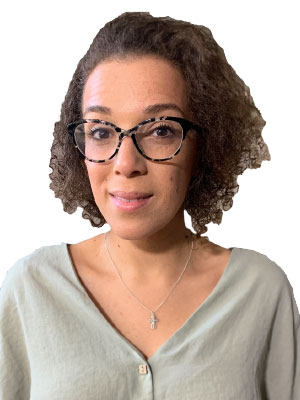
Introducing Visions of Colour
Visions of Colour is a new racial justice training programme for Baptist ministers. A filmed resource, it was commissioned by the Sam Sharpe Project in the wake of the murder of George Floyd and a request by Baptist ministers for compulsory equality, diversity and unconscious bias training. Course developer Eleasah Louis explains more
What is ‘Visions of Colour’?
Visions of Colour is a racial justice training programme designed to aid the process of Baptist ministerial formation in its engagement with justice and society. The ultimate goal is to help Baptist ministers develop action plans suited to their local church and community. The Sam Sharpe Project initiated
Visions of Colour in partnership with the Baptist Union of Great Britain. Baptists Together Justice Enabler Wale Hudson-Roberts sought the advice of theologian Robert Beckford, the Professor of Black Theology at The Queen’s Foundation, who helped bring the concept to structured reality – a course centred around
decolonising theology, culture, worship, mission, the Bible and preaching.
There were two crucial catalysts for
Visions of Colour. One was an open letter from around 250 Baptist ministers to the General Secretary, Lynn Green, and the former Baptist Union President, Yinka Oyekan, that equality, diversity, and unconscious bias training become a compulsory part of both initial Ministerial Formation and Continuing Ministerial Development.
Visions of Colour seeks to address some of the gaps with a robust, instructional and developmental approach to racial justice training with concrete action plans resulting from the training.
Another was the killing of George Floyd, which triggered an enormous amount of public uproar. The revolutionary and passionate protest led by the Black Lives Matter movement brought further fuel to the public fires and served our churches with further challenges as it prodded at British churches’ historical complicity to the destruction of black lives.
Visions of Colour seeks to give Baptist ministers the tools to respond to this socio-political climate meaningfully and theologically.
Following the initial conversations, I (Eleasah) was commissioned by The Sam Sharpe Project to develop the resource and produce a learning module that would be supported, supervised and distributed by the Baptist Union Ministries Team.
How has it been put together? (Theology and Method)
There are some basic theological principles undergirding the shaping of Visions of Colour:
-
All are made in the image of God (Genesis 1:27): we understand this to mean that God sees all people from all ethnicities as equal. With this in mind, we believe churches should be places where people are recognised and treated as equal to others.
-
Racism is a sin: any action, thought, deed and structure that denies the dignity and freedoms of another person based on their ethnicity is sinful as it is contrary to God’s Word and the example we see of Jesus’ ministry in the New Testament. (1 Timothy 5:21, Galatians 2:11-16)
-
As Christians we must reflect the heart of God (to the best of our ability) and seek justice for those who are not afforded dignity, opportunities and freedom because of prejudice against their ethnicity. This process must include repentance, forgiveness, reconciliation and reparation. (Isaiah 1:17, Luke 17:3 and 19:10)
All theology is contextual – some are just not ready to admit it. Our history, geography, experiences (both collective and individual), language, culture, and self-interests all play a part in the way we interpret and apply scripture. These factors have an impact on our theological imagination. Our theological imagination informs our teaching styles, hermeneutics, biblical emphasis, our churches’ cultures and structures, and in some cases, our bias against those who are different.
Visions of Colour seeks to challenge racist attitudes, perspectives, and infrastructures still at play regarding our approaches to mission, the local community, teaching and preaching, the way our church looks, and our responses to social justice issues.
Challenges
People may get worried about bringing social and political theories too closely to ministerial formation as they spark confrontation and often can be emotionally charged as the boundaries of various ethnicities, classes, genders, abilities and experiences collide. It seems people still underestimate how much these human processes have always played a significant role in how we have come to understand God. Progressive and radical movements often dominate 21st century conversations about racial justice; this generates pushback from more conservative Christian communities as their most basic theological premises are called into question. Visions of Colour recognises this as a challenge that requires transparency and further exploration on all sides.
In the spirit of Baptist principles,
Visions of Colour leans on the principle of democracy which recognises each church’s autonomy and liberty; to be led by the Holy Spirit and discern ways forward for the congregation.
As a result,
Visions of Colour looks to a variety of contributors situated along the conservative-progressive spectrum regarding their theology and method. Each session (in video format) includes thoughts from a cross-section of ministers in the UK, a focused learning point (background and theory) and a lecture that explores the theme and considers actions that the ministers could employ.
Silence is complicity; ignorance is complicity, ‘colourblindness’ is complicity.
To read Eleasah’s full article visit: www.baptist.org.uk/eleasah
Click here to
download a pdf version of this article
 Eleasah Louis
Eleasah Louis is a researcher and resource developer.
She completed a PhD Canterbury Christ Church University in 2021
Illustration:
Photo by Jessica Felicio on Unsplash